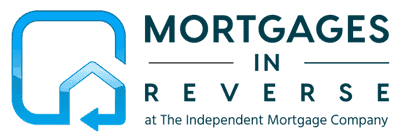Did you know that Vancouver's cost of living could affect your retirement planning? As you navigate this financial landscape, you might want to consider reverse mortgages as a potential strategy.
These unique loans allow you to convert part of your home's equity into cash, extending your financial resources during retirement. However, they're not without their complexities and potential pitfalls.
Intrigued? Stay with us to explore why this could be a game-changing move for your golden years.
Key Takeaways
- Reverse mortgages, suitable for homeowners aged 62+, offer a no-monthly-repayment retirement plan in Vancouver.
- Eligibility for reverse mortgages includes being 55+, owning and living in the property, and demonstrating ability to maintain property.
- Benefits of reverse mortgages include non-taxable loan money and flexible usage, yet high interest rates and increasing loan balance are drawbacks.
- Alternatives to reverse mortgages include equity release, annuity purchases, downsizing, and investing for retirement income.
Understanding Reverse Mortgages
To fully grasp the concept of reverse mortgages, you need to understand that it's a type of home equity loan exclusively available to homeowners aged 62 and older. Unlike traditional loans, there's no monthly repayment obligation. Instead, the loan is repaid when you sell the home, move out permanently, or pass away.
Many reverse mortgage misconceptions exist, often causing confusion and apprehension among potential borrowers. One common myth is that the lender can take ownership of your home. In reality, you'll retain the title and ownership during the life of the loan. The lender's perspective is quite different; they're primarily concerned with the home's equity, your ability to maintain the property, and keep up with tax and insurance payments.
Another misconception is that you could owe more than your home is worth. This isn't true. Federal law limits your liability to the value of the home. If the balance exceeds the home's value at the time of repayment, the shortfall is covered by the Federal Housing Administration.
Understanding these facts can help dispel fears, making the decision-making process around reverse mortgages clearer and more manageable.
Eligibility for Reverse Mortgages
Now that we've dispelled common misconceptions about reverse mortgages, let's explore who's eligible for this type of loan. Generally, you, as a prospective borrower, need to be at least 55 years old and own a property that's your primary residence. Lender selection plays a key role in eligibility, as different lenders have varying criteria. Some may require you to have a certain amount of equity in your home, while others may focus more on the value of your property.
However, meeting the age and property requirements doesn't guarantee your eligibility. You'll also need to demonstrate the ability to maintain your property and pay insurance and property taxes. Remember, failure to meet these responsibilities may lead to foreclosure.
Now, let's talk tax implications. The money from a reverse mortgage isn't taxable, meaning it won't directly affect your income tax. But it could impact your eligibility for government benefits, so you must consider this in your decision.
In essence, while reverse mortgages present a viable option for retirement planning in Vancouver, eligibility is multifaceted. It's important to fully understand these aspects and consider professional advice before proceeding.
Benefits and Drawbacks
Understanding the benefits and drawbacks of reverse mortgages is crucial before deciding if it's the right choice for your retirement plan.
Firstly, let's talk about the benefits:
- You're not required to make monthly payments, which can ease your financial burden during retirement.
- The loan proceeds aren't taxable, meaning there are no direct tax implications.
- You can use the money for anything you want such as home renovations, healthcare, or travel.
However, there are some drawbacks to consider:
- The interest rates are usually higher than traditional home loans.
- The loan balance increases over time, which could eat into your equity, affecting your ability for equity preservation.
- If you decide to sell your home, the loan must be repaid, which might limit your options.
- Lastly, if you pass away, your heirs will need to repay the loan, potentially creating additional financial burden.
Reverse Mortgage Process
Navigating the process of securing a reverse mortgage can appear complex, but breaking it down into manageable steps can help clarify the path ahead. The first step is understanding the application procedure. You'll need to meet with a financial counselor who specializes in reverse mortgages. They'll provide vital information about the process, ensuring process transparency is maintained.
The next phase involves completing the application form. It's vital to provide accurate information about your home, income, and current mortgage status. After submitting, your application will undergo scrutiny by a lender. They'll assess the home's value, your age, and the current interest rates to determine the amount you can borrow.
Upon approval, you'll receive loan documents for your review and signature. Ensure you understand the terms before signing. A 'cooling off' period follows, allowing you to reconsider or withdraw your application without penalty.
Lastly, the loan is finalized, and you'll receive the funds. You can opt for a lump sum, monthly payments, a line of credit, or a combination. Remember, while a reverse mortgage offers financial flexibility, you're still responsible for property taxes, insurance, and maintenance costs.
Understanding the reverse mortgage process is vital for a smooth application process and future financial planning.
Alternatives to Reverse Mortgages
While a reverse mortgage may present an appealing solution for your retirement planning, it's essential to consider other financial options that could better suit your individual circumstances and goals. Here are four more strategies to consider:
- Equity Release Options: This enables you to access some of the equity in your home while still living in it. It's an alternative to a reverse mortgage and often comes with lower interest rates.
- Annuity Purchases: An annuity provides a steady stream of income during retirement. You can purchase it with a lump sum or through payments over time.
- Downsizing: Selling your current home and moving to a smaller, more affordable one can free up equity and reduce costs.
- Investments: Stocks, bonds, and mutual funds can provide income during retirement. It's important to seek advice from a financial advisor to understand the risks involved.
Frequently Asked Questions
What Is the Average Amount of Loan You Can Get From a Reverse Mortgage in Vancouver?
The average loan you can get from a reverse mortgage in Vancouver varies. It's primarily based on your age, home's value, and current interest rates. These are known as loan eligibility factors.
Interest rates impact the loan amount too. The older you're and the more valuable your home, the larger the loan you can potentially receive. But remember, a higher interest rate might decrease the amount you can borrow.
How Does a Reverse Mortgage Impact the Inheritance I Leave to My Family in Vancouver?
You're likely wondering how a reverse mortgage impacts the inheritance you'll leave to your family in Vancouver.
It's a common misconception that reverse mortgages eat into your entire estate. Actually, it depends on the home's value when you pass away. Yes, your heirs will need to repay the loan, but any remaining equity is theirs.
Inheritance tax implications? Don't worry, Canada doesn't have those. Just remember, it's crucial to consider all aspects before deciding.
Can I Get a Reverse Mortgage if I Have an Existing Mortgage or Debt on My Vancouver Property?
Yes, you can get a reverse mortgage even if you have an existing mortgage or debt on your property in Vancouver. Actually, many people use reverse mortgages for debt consolidation. Your mortgage eligibility isn't hindered by current debts.
However, proceeds from your reverse mortgage must first be used to pay off any existing mortgage or liens. So, it's a way to handle existing debt while tapping into your home's equity.
Where Can I Get More Personalized Advice About Whether a Reverse Mortgage Is the Right Option for Me in Vancouver?
For personalized advice on reverse mortgages in Vancouver, consider consulting with financial advisors or mortgage brokers. They can help assess your reverse mortgage eligibility and outline potential tax implications.
It's also wise to discuss your situation with a lawyer to ensure you understand all legal aspects. Remember, while a reverse mortgage can be a good option, it may not be the best choice for everyone.
Are There Any Government Programs or Subsidies in Vancouver to Aid in Reverse Mortgage Repayments?
You're looking into whether there are any government subsidies or programs in Vancouver to assist with reverse mortgage repayments.
Unfortunately, there aren't specific subsidy eligibility schemes or programs that directly aid reverse mortgage repayments.
It's vital you understand the program limitations of reverse mortgages.
Always consult with a financial advisor to explore all your options and ensure you're making the most informed decision for your retirement planning.

